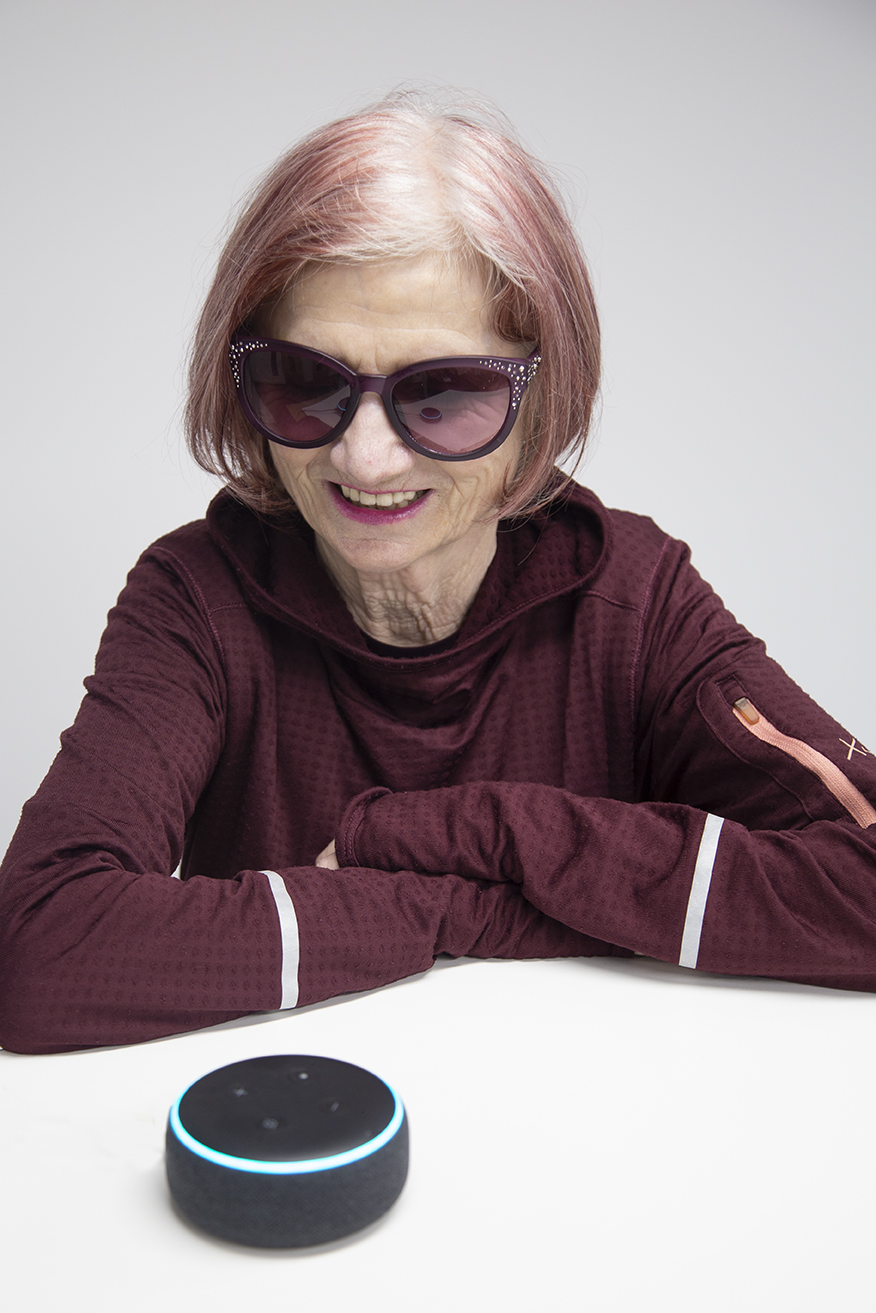RNIB joins forces with Amazon’s Alexa

Dolly using Alexa
The Royal National Institute of Blind People (RNIB) has worked with Amazon to provide information about living with sight loss through its voice assistant, Alexa.
Alexa users will now instantly be able to hear RNIB-verified information using voice commands such as: “Alexa, how do I register as sight impaired or severely sight impaired?”; “Alexa, what assistive technology do blind people use?”; and “Alexa, what should I do if I think I’m losing my sight?”
The collaboration will enable Alexa to provide information directly from the charity’s Sight Loss Advice Service. It is hoped the tool will help improve the accessibility of online information for more than two million people across the UK who are living with sight loss, after RNIB research showed that vision impairment remains a major barrier to accessing the internet.
According to the charity’s 2015 My Voice survey, more than half of blind and partially sighted people (54 per cent) claim their sight loss is a barrier to using the internet, and nearly two thirds (61 per cent) report feeling unable to make the most of new technology, with many citing accessibility issues[1].
Dolly McLoughlin, 71, is a retired administrative assistant from Harrow. She started to lose her sight in her 40s due to retinitis pigmentosa. She said: “While I was working, there was always someone there that could help, like the IT department, but since retiring it’s been difficult to keep up with how quickly technology changes. I can use emails and documents, but I find navigating the internet with a screen reader very difficult indeed. Websites are all designed differently, which makes it hard to find what I am looking for. I’m no good at looking up specific information or ordering things. I have to get someone to help me.
“Alexa is different. I can just ask her questions and she will tell me the answer. Listening to music, the radio and my audio books through Alexa is wonderful, but getting direct information – like a short biography of an author, or the synopsis of a play I’m interested in – is priceless. It’s fantastic that organisations like RNIB are starting to use it in this way and I hope more companies will follow.”
David Clarke, director of services at the RNIB, said: “Voice assistant technology is playing an ever-increasing role in transforming the lives of blind and partially sighted people. Members of our Connect Community tell us they often use voice assistants, like Alexa, to stay up-to-date with the latest news and information – and many say they find it easier to use than screen-based tech, like smart phones, tablets or computers.
“Voice assistants can enable independence, helping to break down accessibility barriers to a more inclusive society. By using this technology to increase the reach of our own resources, we are ensuring that people can immediately get essential information about sight conditions, their rights, and the support available, simply by asking out loud.”
As well as sight loss information, RNIB also offers practical tips and advice on how to protect eyesight and how to support someone who is blind or partially sighted via Alexa.
“We love hearing feedback from customers about how they use Alexa throughout their day – whether that’s listening to music, setting alarms and timers, or making an announcement at home that dinner is ready,” said Dennis Stansbury, Alexa UK country manager. “We are delighted that customers can now access information from the RNIB website using voice technology.”
The new support offered by Alexa is the latest in RNIB’s digital offering, adding to its wider Sight Loss Advice Service which provides practical advice and emotional support over the phone and online, as well as face to face in eye clinics.
To find out more about RNIB’s Sight Loss Advice Service, click here, call 0303 123 9999 or ask Alexa: “What is RNIB’s Sight Loss Advice Service?”